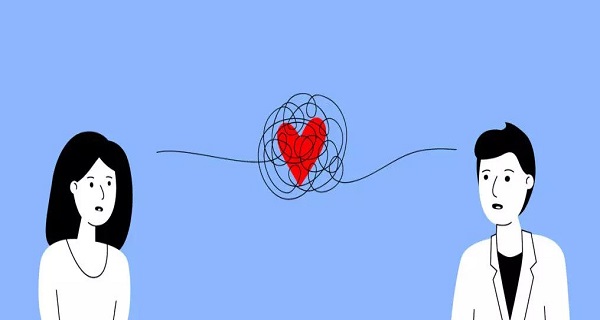The Consequences of Dishonesty: A Morality Story of Betrayal and Loss
-
Table of Contents
- Introduction
- The Impact of Dishonesty on Relationships: How Betrayal Can Lead to Loss of Trust
- The Psychological Effects of Dishonesty: How Lying Can Lead to Emotional Turmoil
- The Financial Consequences of Dishonesty: How Dishonesty Can Lead to Financial Loss
- The Legal Implications of Dishonesty: How Dishonesty Can Lead to Criminal Charges
- The Social Consequences of Dishonesty: How Dishonesty Can Lead to Social Isolation
- Conclusion
“Honesty is the best policy – learn the hard way with The Consequences of Dishonesty!”
Introduction
The Consequences of Dishonesty: A Morality Story of Betrayal and Loss is a cautionary tale about the dangers of dishonesty. It follows the story of a young man who makes a series of dishonest decisions that lead to devastating consequences. Through this story, readers are reminded of the importance of honesty and the consequences of dishonesty. The story is a powerful reminder of the importance of being honest and the consequences of dishonesty. It is a story of betrayal, loss, and ultimately, redemption.
The Impact of Dishonesty on Relationships: How Betrayal Can Lead to Loss of Trust
Betrayal is one of the most painful experiences that can occur in a relationship. When someone we trust lies to us or breaks our trust, it can be devastating. Dishonesty can have a profound impact on relationships, leading to a loss of trust and a breakdown in communication.
When someone lies to us, it can make us feel betrayed and hurt. We may feel like we can’t trust them anymore and that our relationship is no longer safe. We may also feel angry and resentful, and these feelings can be difficult to overcome. Dishonesty can lead to a lack of trust, which can be difficult to rebuild.
When trust is broken, it can be hard to communicate openly and honestly. We may be afraid to share our thoughts and feelings, or we may be too hurt to even want to talk. This can lead to a breakdown in communication, which can further damage the relationship.
Dishonesty can also lead to a lack of respect. We may no longer respect the person who lied to us, and this can lead to further issues in the relationship. We may also feel like we can’t rely on them, which can make us feel insecure and vulnerable.
The impact of dishonesty on relationships can be profound. It can lead to a loss of trust, a breakdown in communication, and a lack of respect. It can be difficult to rebuild trust after it has been broken, but it is possible. It is important to be honest and open with each other, and to work together to rebuild the trust that has been lost.
The Psychological Effects of Dishonesty: How Lying Can Lead to Emotional Turmoil

Honesty is one of the most important values we can have in life. It’s essential for building trust and strong relationships with others, and it’s also essential for our own mental and emotional wellbeing. Unfortunately, dishonesty can have a serious impact on our mental health, leading to feelings of guilt, shame, and anxiety.
When we lie, we’re essentially telling ourselves that it’s okay to be dishonest. This can lead to a slippery slope of more and more lies, as we become more comfortable with the idea of not telling the truth. This can lead to a feeling of guilt and shame, as we become aware of our own dishonesty. We may also feel anxious, as we worry about being caught in our lies or about the consequences of our dishonesty.
Dishonesty can also lead to a feeling of isolation, as we become aware that we’re not being honest with those around us. We may feel like we can’t trust anyone, and this can lead to feelings of loneliness and depression. We may also feel like we’re not worthy of being loved or accepted, which can lead to further emotional turmoil.
Finally, dishonesty can lead to a lack of self-confidence. We may feel like we’re not capable of being honest, and this can lead to a lack of self-esteem and a feeling of worthlessness. We may also feel like we’re not capable of achieving our goals, as we’re not being honest with ourselves or with others.
The psychological effects of dishonesty can be serious and long-lasting. It’s important to be honest with ourselves and with those around us in order to maintain our mental and emotional wellbeing. Honesty is essential for building trust and strong relationships, and it’s also essential for our own mental and emotional wellbeing.
The Financial Consequences of Dishonesty: How Dishonesty Can Lead to Financial Loss
When it comes to money, honesty is always the best policy. Dishonesty can lead to financial loss in many ways, and it’s important to be aware of the potential consequences of being dishonest.
One of the most common ways dishonesty can lead to financial loss is through fraud. Fraud is when someone lies or misrepresents themselves in order to gain something of value. This could be anything from lying about your income to get a loan, to using someone else’s credit card to make purchases. Fraud can lead to serious financial losses, as you may be held liable for any money you have taken or spent.
Another way dishonesty can lead to financial loss is through theft. Theft is when someone takes something that doesn’t belong to them without permission. This could be anything from stealing money from a bank account to shoplifting from a store. Theft can lead to serious financial losses, as you may be held liable for any money or items you have taken.
Finally, dishonesty can lead to financial loss through bad investments. When someone is dishonest about the risks associated with an investment, they may be encouraging others to invest in something that is not a good idea. This can lead to serious financial losses, as the investment may not pay off as expected.
Dishonesty can lead to serious financial losses, and it’s important to be aware of the potential consequences of being dishonest. It’s always best to be honest and upfront about your finances, as this will help you avoid any potential financial losses.
The Legal Implications of Dishonesty: How Dishonesty Can Lead to Criminal Charges
Honesty is the best policy. We’ve all heard this phrase before, and it’s true. Dishonesty can have serious legal implications, and it’s important to understand how it can lead to criminal charges.
When it comes to dishonesty, there are a few different types of criminal charges that can be brought against someone. The most common type of charge is fraud. Fraud is when someone lies or misrepresents something in order to gain an advantage or benefit. This could be anything from lying on a loan application to misrepresenting a product or service.
Another type of criminal charge related to dishonesty is theft. Theft is when someone takes something that doesn’t belong to them without permission. This could be anything from shoplifting to embezzlement.
Finally, perjury is another type of criminal charge related to dishonesty. Perjury is when someone lies under oath in a court of law. This could be anything from lying in a deposition to lying on the witness stand.
It’s important to understand that dishonesty can have serious legal implications. If you’re ever in a situation where you’re tempted to be dishonest, it’s best to think twice before you act. Being honest is always the best policy.
The Social Consequences of Dishonesty: How Dishonesty Can Lead to Social Isolation
Honesty is one of the most important values in life. It is essential for building trust and strong relationships with others. Unfortunately, dishonesty can have serious social consequences. When someone is dishonest, it can lead to social isolation and a lack of meaningful connections with others.
When someone is dishonest, it can be difficult for others to trust them. People may be hesitant to open up and share their feelings and experiences with someone who has been dishonest. This can lead to a lack of meaningful relationships and social isolation. People may also be less likely to invite someone who has been dishonest to social events or activities. This can further contribute to feelings of loneliness and isolation.
Dishonesty can also lead to a lack of respect from others. People may not take someone seriously if they have been dishonest in the past. This can lead to a lack of respect from peers, colleagues, and even family members. This lack of respect can further contribute to feelings of isolation and loneliness.
Finally, dishonesty can lead to a lack of self-respect. When someone is dishonest, they may feel guilty or ashamed of their actions. This can lead to a lack of self-confidence and self-esteem, which can further contribute to feelings of isolation and loneliness.
Dishonesty can have serious social consequences. It can lead to a lack of trust, respect, and meaningful relationships with others. It can also lead to a lack of self-respect and self-confidence. All of these factors can contribute to feelings of social isolation and loneliness. Therefore, it is important to be honest in order to maintain strong relationships with others and avoid the social consequences of dishonesty.
Conclusion
The Consequences of Dishonesty: A Morality Story of Betrayal and Loss is a powerful reminder of the importance of being honest and trustworthy. It shows us that dishonesty can have serious consequences, not only for the person who is dishonest, but also for those around them. Dishonesty can lead to broken relationships, lost opportunities, and even criminal charges. It is important to remember that honesty is always the best policy and that it is never too late to make the right decision.
Related Posts
-
 The Value of Respect in Relationships: A Morality Story
No Comments | Feb 25, 2023
The Value of Respect in Relationships: A Morality Story
No Comments | Feb 25, 2023 -
 The Danger of Complacency: A Morality Story of Stagnation and Regret
No Comments | Feb 25, 2023
The Danger of Complacency: A Morality Story of Stagnation and Regret
No Comments | Feb 25, 2023 -
 The Importance of Transparency in Building Trust and Connection
No Comments | Feb 25, 2023
The Importance of Transparency in Building Trust and Connection
No Comments | Feb 25, 2023 -
 The Importance of Acknowledgment in Strengthening Relationships
No Comments | Feb 25, 2023
The Importance of Acknowledgment in Strengthening Relationships
No Comments | Feb 25, 2023
